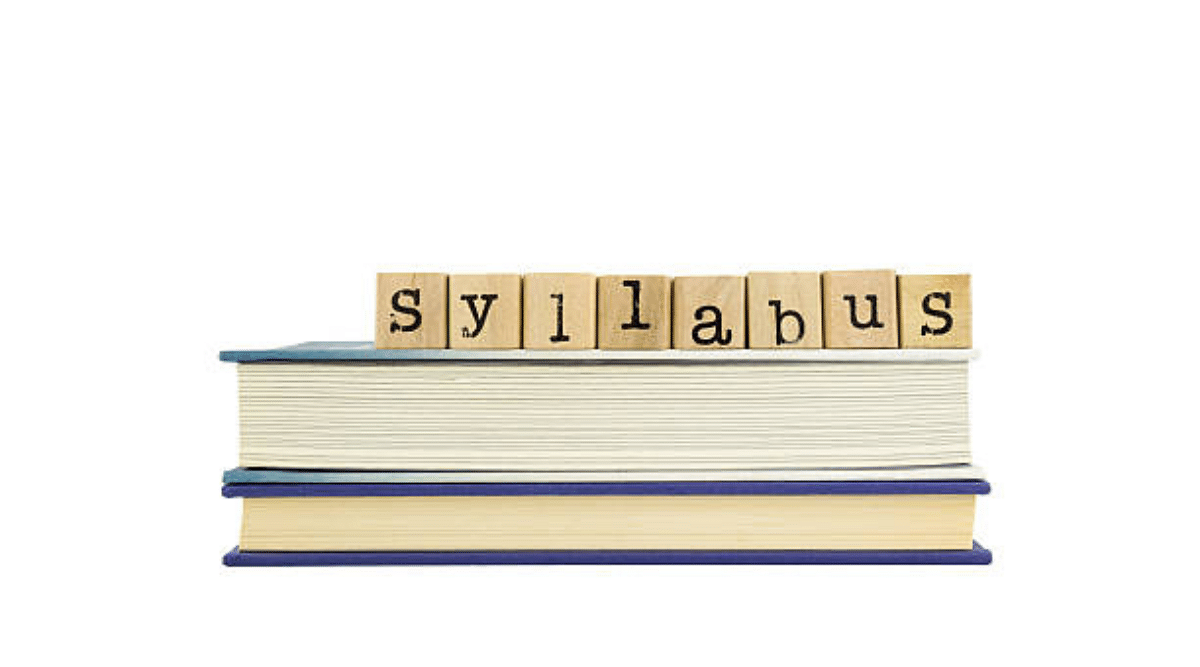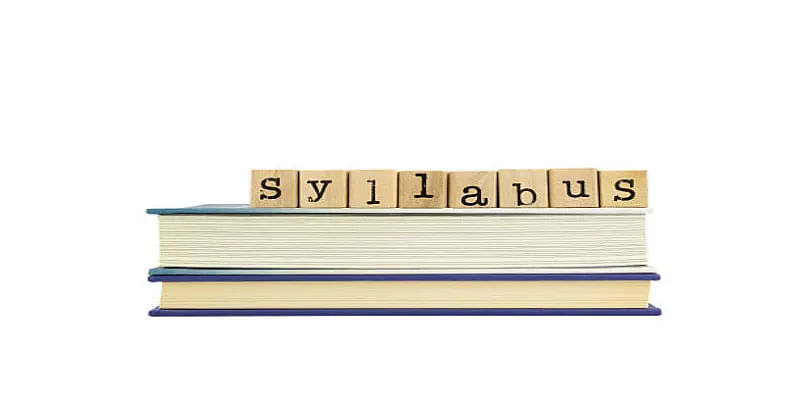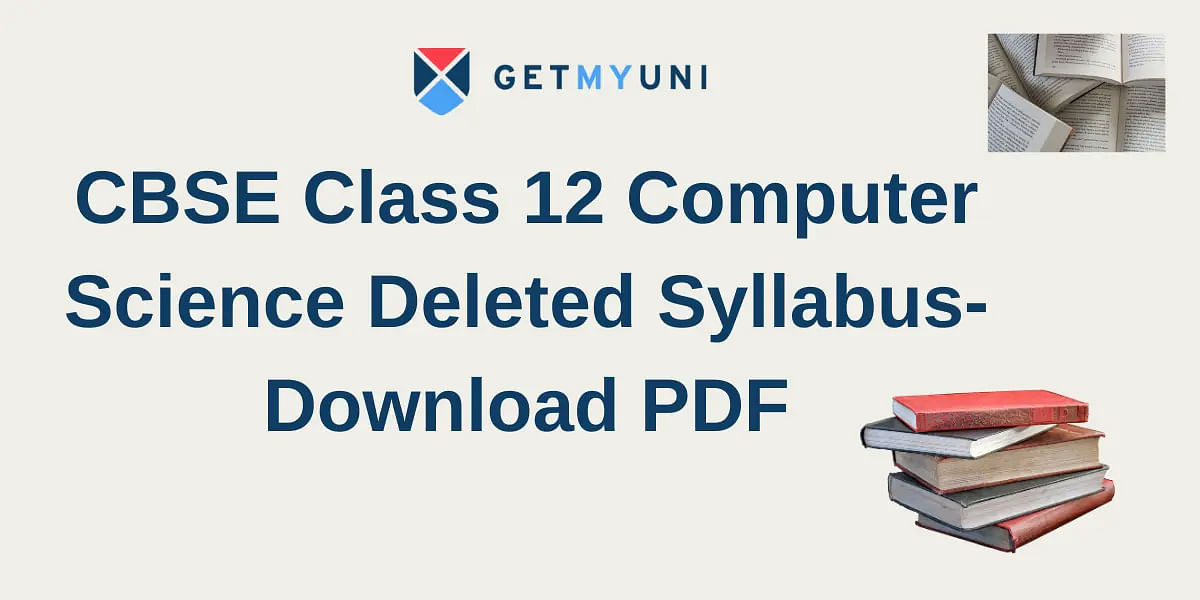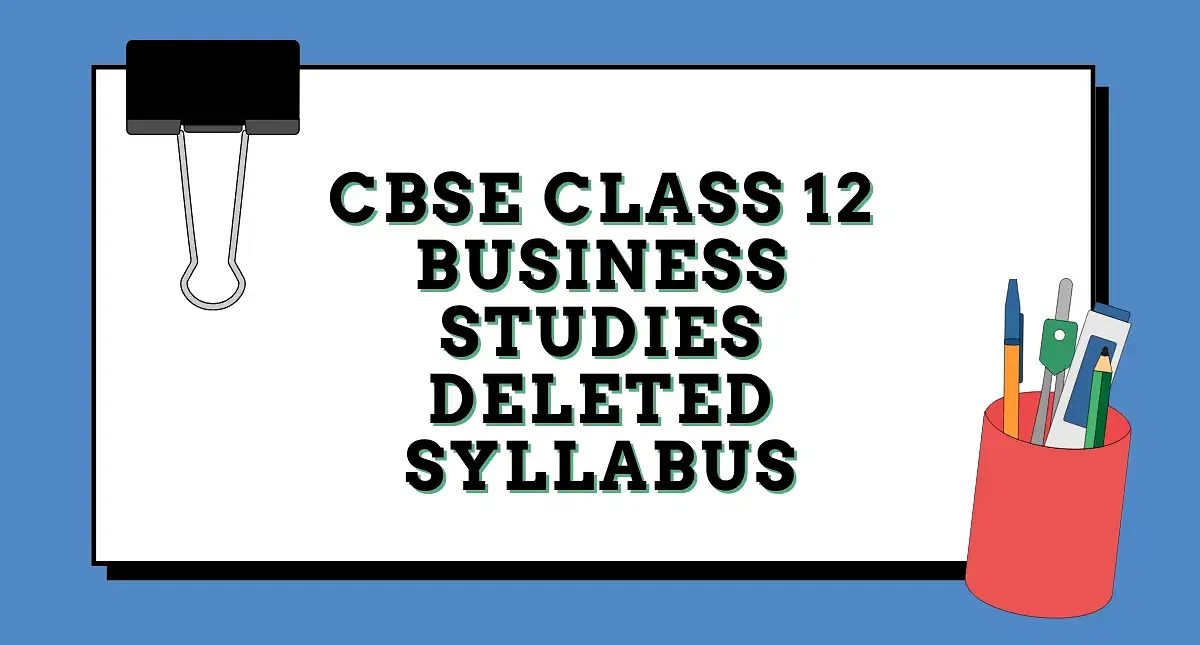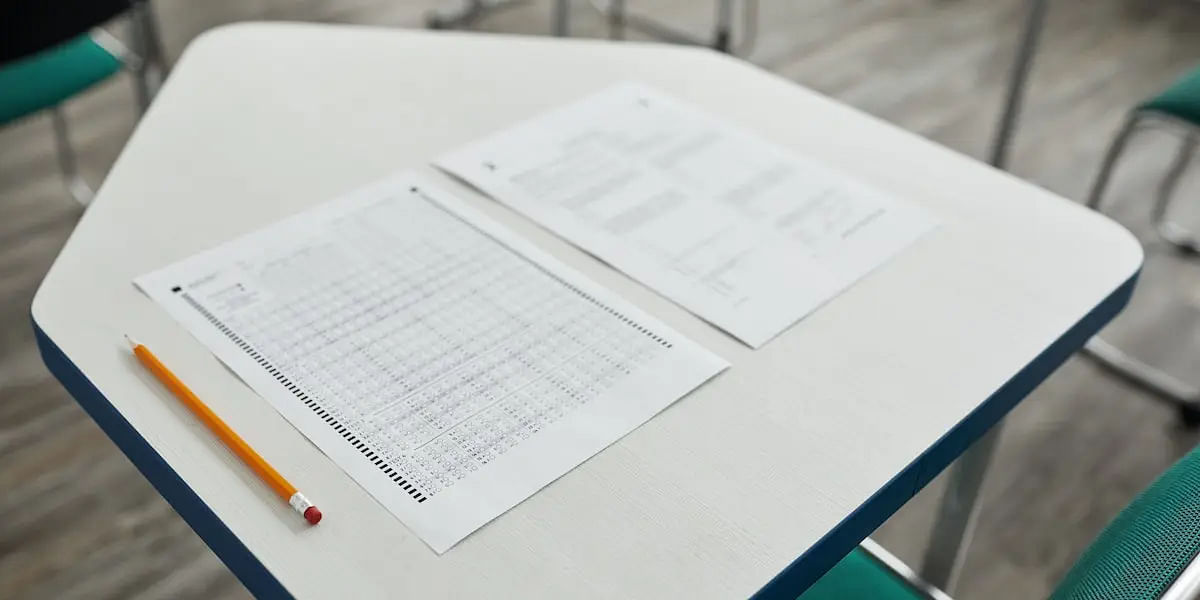The CBSE Class 12th Economics Syllabus 2023-24 includes topics such as food supply channel, contemporary employment and more. The theory paper is for 80 marks and practical for 20.
The CBSE Class 12th Economics Syllabus 2023-24 includes three parts, namely, Introductory Macroeconomics, Indian Economic Development, and Project in Economics. Further students will study detailed topics such as Money and Banking, Government Budget and the Economy, Development Experience of India, and more. Students must go through the entire CBSE class 12th syllabus to learn about the updated course structure and exam pattern.
CBSE Class 12th Economics Syllabus 2023-24 Unit-Wise
Candidates can refer to the unit-wise CBSE Class 12th Economics Syllabus 2023-24 listed below.
| Part A: Introductory Macroeconomics | |
| Unit 1 | National Income and Related Aggregates |
|
|
| Unit 2 | Money and Banking |
|
|
| Unit 3 | Determination of Income and Employment |
|
|
| Unit 4 | Government Budget and the Economy |
|
|
| Unit 5 | Balance of Payment |
|
|
| Part B: Indian Economic Development | |
| Unit 6 | Development Experience (1947-90) and Economic Reforms since 1991 |
|
|
| Unit 7 | Current challenges facing Indian Economy |
|
|
| Unit 8 | Development Experience of India: |
|
|
| Part C: Project in Economics | |
Prescribed Books:
|
|
CBSE Class 12th Economics Marks Distribution
The total marks distribution for CBSE Class 12th Economics Syllabus 2023-24 is tabulated below.
| Units | Topics | Marks | Periods |
| Part-A | Introductory Macroeconomics | ||
| National Income and Related Aggregates | 10 | 30 | |
| Money and Banking | 06 | 15 | |
| Determination of Income and Employment | 12 | 30 | |
| Government Budget and the Economy | 06 | 17 | |
| Balance of Payments | 06 | 18 | |
| 40 | |||
| Part-B | Indian Economic Development | ||
| Development Experience (1947-90)and Economic Reforms since 1991 | 12 | 28 | |
| Current Challenges Facing the Indian Economy | 20 | 50 | |
| Development Experience of India – A Comparison with Neighbours | 08 | 12 | |
| Theory Paper (40+40 = 80 Marks) | 40 | ||
| 200 | |||
| Part-C | Project Work | 20 | 20 |
CBSE Class 12th Economics - Project Guidelines
The objectives of the project work, per CBSE Class 12th Economics Syllabus 2023-24 are to enable learners to:
- Probe deeper into theoretical concepts learnt in classes XI and XII.
- Analyse and evaluate real-world economic scenarios using theoretical constructs and arguments.
- Demonstrate the learning of economic theory.
- Follow up aspects of economics in which learners have an interest.
- Develop the communication skills to argue logically.
The expectations of the project work are that:
- Learners will complete only ONE project in each academic session.
- The project should be 3,500-4,000 words (excluding diagrams & graphs), preferably hand-written.
- It will be an independent, self-directed piece of study.
Role of the teacher:
The teacher plays a critical role in developing the learners' thinking skills. A teacher should:
- Help each learner select the topic based on recently published extracts from the news media, government policies, RBI bulletin, NITI Aayog reports, IMF/World Bank reports etc., after detailed discussions and deliberations on the topic.
- Play the role of a facilitator and supervisor to monitor the project work of the learner through periodic discussions.
- Guide the research work in terms of sources for the relevant data.
- Educate learners about plagiarism and the importance of quoting the source of information to ensure the authenticity of research work.
- Prepare the learner for the presentation of the project work.
- Arrange a presentation of the project file.
Expected Checklist:
- Introduction of topic/title.
- Identify the causes, consequences and/or remedies
- Various stakeholders and their effect on each of them
- Advantages and disadvantages of situations or issues identified
- Short-term and long-term implications of economic strategies suggested in the course of research
- Validity, reliability, appropriateness and relevance of data used for research work and for presentation in the project file
- Presentation and writing that is succinct and coherent in the project file
- Citation of the materials referred to, in the file in footnotes, resources section, bibliography etc.
Mode of presentation/submission of the Project:
At the end of the stipulated term, each learner will present the research work in the Project File to the External and Internal examiner, per the CBSE Class 12th Economics Syllabus 2023-24. Questions should be asked from the Research Work/ Project File of the learner. The Internal Examiner should ensure that the study submitted by the learner is his/her own original work. In case of any doubt, authenticity should be checked and verified.
Marking Scheme:
CBSE class 12th marking scheme for the economics project is listed below. Marks are suggested to be given as:
| S.No. | Heading | Marks Alloted |
| 1 | Relevance of the topic | 3 |
| 2 | Knowledge Content/Research Work | 6 |
| 3 | Presentation Technique | 3 |
| 4 | Viva-voce | 8 |
| Total | 20 |
CBSE Class 12th Economics - Suggestive List of Projects
Some topics which students can create a project on per the prescribed CBSE Class 12th Economics Syllabus 2023-24 are mentioned below.
- Micro and Small Scale Industries
- Food Supply Channel in India
- Contemporary Employment Situation in India
- Disinvestment Policy of the Government
- Goods and Services Tax Act and its Impact on GDP
- Health Expenditure (of any state)
- Human Development Index
- Inclusive Growth Strategy
- Self-help Group
- Trends in Credit Availability in India
- Monetary Policy Committee and its Functions
- Role of RBI in Control of Credit
- The Government Budget & its Components
- Trends in Budgetary Conditions in India
- Exchange Rate Determination – Methods and Techniques
- Currency War – Reasons and Repercussions
- Livestock – Backbone of Rural India
- Alternate fuel – Types and Importance
- Sarwa Siksha Abhiyan – Cost Ratio Benefits
- Golden Quadrilateral - Cost ratio benefit
- Minimum Support Prices x Relation between Stock Price Index and Economic Health of Nation
- Waste Management in India – Need of the hour
- Minimum Wage Rate – Approach and Application
- Digital India - Step Towards the Future
- Rain Water Harvesting – A Solution to Water Crises
- Vertical Farming – an alternate way
- Silk Route - Revival of the Past
- Make in India – The way ahead
- Bumper Production - Boon or Bane for the farmer
- Rise of Concrete Jungle - Trend Analysis
- Organic Farming - Back to the Nature
- Any other newspaper article and its evaluation on the basis of economic principles
- Any other topic

